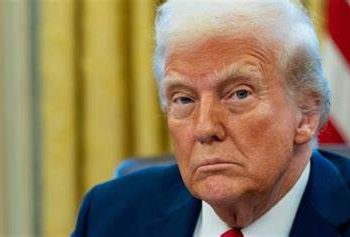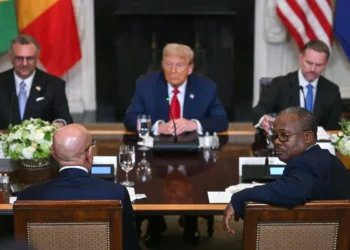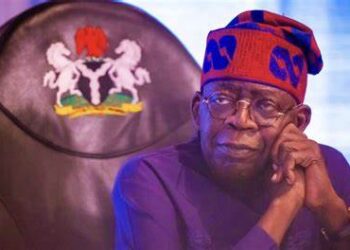The Chinese government has thrown its weight behind President Bola Tinubu’s administration, strongly condemning Washington’s threat of military action against Nigeria over allegations of Christian persecution.
Mao Ning, spokesperson for China’s Ministry of Foreign Affairs, made Beijing’s position clear during a press conference on Tuesday when asked to comment on United States President Donald Trump’s warnings that American forces could intervene militarily if Nigeria fails to protect Christians.
Ning characterized Nigeria as a comprehensive strategic partner of China and issued a firm warning against what she described as interference in the internal affairs of sovereign nations under the guise of human rights and religious freedom concerns.
“As Nigeria’s comprehensive strategic partner, China firmly opposes any country using religion and human rights as an excuse to interfere in other countries’ internal affairs, and threatening other countries with sanctions and force,” the Chinese foreign ministry spokesperson declared.
Her statement represents Beijing’s strongest intervention yet in the escalating diplomatic crisis between Nigeria and Washington, positioning China squarely on Nigeria’s side as the West African nation faces unprecedented pressure from the United States.
China’s support comes at a critical moment for Nigeria, which has been grappling with Trump’s designation of the country as a “Country of Particular Concern” and subsequent threats that American military strikes could be “fast, vicious, and sweet” if the Nigerian government does not act to stop alleged attacks on Christians.
By framing its opposition in terms of sovereignty and non-interference—core principles of Chinese foreign policy—Beijing has signaled that it views the American threats as part of a broader pattern of Western interventionism that China has consistently opposed on the global stage.
The Chinese statement also carries particular weight given Beijing’s growing economic and strategic footprint across Africa, where it has positioned itself as an alternative partner to Western nations, offering investment and cooperation without the political conditions often attached to Western aid and engagement.
Nigeria and China have deepened bilateral relations in recent years, with Beijing involved in major infrastructure projects across the country and serving as a significant trading partner. China’s characterization of Nigeria as a “comprehensive strategic partner” underscores the importance Beijing places on its relationship with Africa’s largest economy.
The foreign ministry spokesperson’s comments suggest that the brewing crisis between Nigeria and the United States could have wider geopolitical implications, potentially accelerating Nigeria’s pivot toward China and other non-Western powers if relations with Washington continue to deteriorate.
China’s intervention also reflects broader Sino-American competition for influence across the African continent, where both powers have invested heavily in recent decades. By supporting Nigeria against American pressure, Beijing positions itself as a defender of African sovereignty and a counterweight to Western dominance.
The statement is likely to be welcomed by Nigerian authorities, who have been seeking international support as they push back against Trump’s allegations and threats. Having a major global power like China publicly endorse Nigeria’s position strengthens the government’s hand in the diplomatic confrontation with Washington.
However, China’s backing could also complicate matters, as it may harden American resolve to pursue pressure on Nigeria, with Washington potentially viewing Chinese support as evidence of Beijing’s attempt to expand its sphere of influence at America’s expense.
As the crisis continues to unfold, China’s firm stance suggests that what began as a bilateral dispute between Nigeria and the United States could evolve into a broader test of competing visions for international relations—with Western powers advocating intervention on human rights grounds, and China championing strict respect for sovereignty and non-interference.
The coming days will reveal whether Chinese diplomatic support translates into concrete assistance for Nigeria, and whether other global powers will align themselves with either Washington or Beijing in what has become an increasingly polarized standoff over Nigeria’s security situation and the appropriate international response.



















